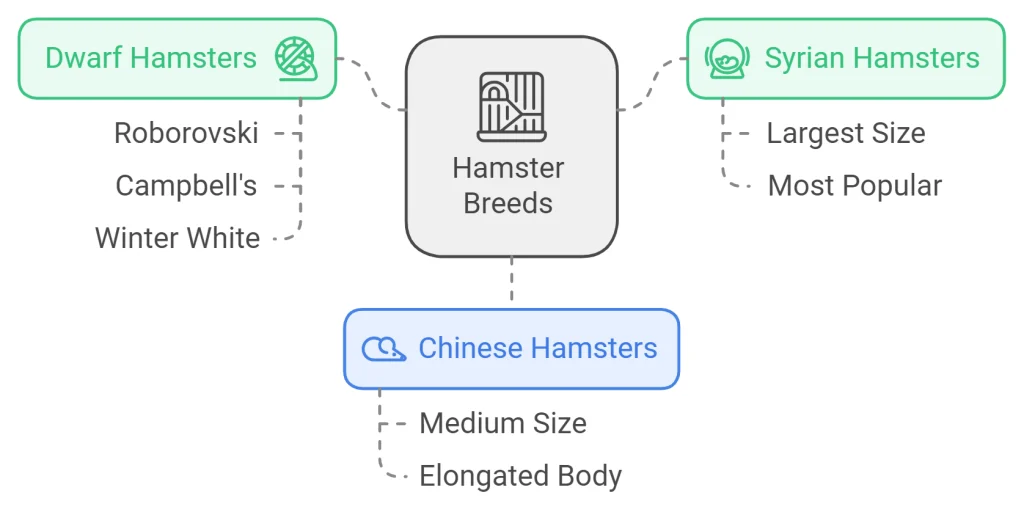Are you considering adding a furry friend to your family but aren’t sure if a hamster is the right choice? As small, cute, and relatively low-maintenance pets, hamsters have become increasingly popular. But before you bring one home, it’s crucial to understand what hamster ownership entails. This comprehensive guide will help you determine if a hamster is a good pet for you.
Hamster 101: Understanding These Furry Friends

Popular Hamster Breeds for Pets
There are several hamster breeds commonly kept as pets, each with its own unique characteristics:
- Syrian Hamsters: Also known as Golden Hamsters, these are the largest and most popular pet hamster species.
- Dwarf Hamsters: Including Roborovski, Campbell’s, and Winter White varieties, these smaller hamsters are known for their energetic personalities.
- Chinese Hamsters: Slightly larger than dwarf hamsters but smaller than Syrians, these hamsters have a more elongated body shape.
Hamster Personality and Behavior
Hamsters are generally solitary animals, preferring to live alone rather than in pairs or groups. They are nocturnal, meaning they’re most active during the night and early morning hours. This can be an important consideration for light sleepers or those expecting a playful daytime companion.
Hamster personalities can vary widely, even within the same species. Some may be friendly and curious, while others might be more shy or skittish. With patience and gentle handling, most hamsters can become comfortable with human interaction.
Typical Hamster Lifespan as Pets
When considering a hamster as a pet, it’s important to understand their lifespan. On average, hamsters live between 2-3 years, with some potentially reaching 4 years with excellent care. This relatively short lifespan can be both an advantage and a drawback, depending on your perspective and long-term pet ownership plans.
Setting Up the Perfect Hamster Habitat
Essential Hamster Habitat Requirements
Creating a suitable living environment is crucial for your hamster’s health and happiness. Here are the key elements of a proper hamster habitat:
- Spacious cage: Aim for at least 450 square inches of floor space for Syrian hamsters, and 340 square inches for dwarf species.
- Bedding: Use safe, absorbent bedding like paper-based products or aspen shavings.
- Hiding spots: Provide small houses or tunnels for your hamster to nest and feel secure.
- Exercise wheel: A solid-surface wheel appropriate for your hamster’s size is essential for physical activity.
- Food and water containers: Secure, chew-resistant bowls and water bottles are necessary.
Choosing the Right Hamster Cage
When selecting a hamster cage, consider the following options:
- Wire cages: Provide good ventilation but ensure bar spacing is narrow enough to prevent escapes.
- Plastic modular cages: Often expandable, these can create fun environments but may be harder to clean.
- Glass tanks: Offer great visibility and prevent bedding scatter, but require proper ventilation.
- Wooden cages: Aesthetically pleasing but can be difficult to clean and may not withstand chewing.
Hamster Exercise and Toys for Enrichment
Hamsters are active creatures that need mental and physical stimulation. Provide a variety of toys and accessories such as:
- Exercise balls for supervised playtime outside the cage
- Chew toys to maintain dental health
- Tunnels and tubes for exploration
- Wooden bridges or ladders for climbing
- Foraging toys to encourage natural behaviors
Hamster Care for Beginners
Daily and Weekly Care Routines
Caring for a hamster involves several regular tasks:
Daily:
- Provide fresh food and water
- Spot-clean the cage, removing soiled bedding and uneaten food
- Check for any signs of illness or unusual behavior
Weekly:
- Perform a thorough cage cleaning, replacing all bedding
- Clean and disinfect food bowls and water bottles
- Wash and replace toys as needed
Hamster Diet and Nutrition Guidelines
A balanced diet is crucial for your hamster’s health. Here’s what you should know:
- Commercial hamster food: Should make up the bulk of their diet
- Fresh vegetables: Offer small amounts of safe veggies like carrots, cucumber, and leafy greens
- Occasional treats: Seeds, nuts, or small pieces of fruit in moderation
- Always provide fresh, clean water
Avoid foods that are toxic to hamsters, such as onions, garlic, chocolate, and avocado.
Common Health Issues and Preventive Care
While hamsters are generally hardy, they can be prone to certain health problems:
- Respiratory infections
- Wet tail (a severe form of diarrhea)
- Dental issues
- Skin problems like mites or fungal infections
Regular health checks, a clean environment, and a proper diet can help prevent many of these issues. If you notice any changes in your hamster’s behavior, appetite, or appearance, consult a veterinarian experienced in treating small animals.
Pros and Cons of Hamster Ownership
Advantages of Having a Hamster as a Pet
- Low-maintenance compared to larger pets
- Suitable for small living spaces like apartments
- Quiet pets that won’t disturb neighbors
- Generally inexpensive to care for
- Can be entertaining to watch and interact with
Challenges of Hamster Care
- Nocturnal nature means they’re most active when you might be sleeping
- Short lifespan can be difficult for those seeking a long-term pet
- Can be skittish and may take time to bond with their owners
- Require a specialized diet and habitat
- May not be suitable for very young children due to their delicate nature
The Cost of Owning a Hamster
Initial Setup Expenses
- Cage or habitat: $30-$100+
- Exercise wheel: $10-$20
- Food and water containers: $10-$15
- Bedding: $10-$20
- Toys and accessories: $20-$40
Ongoing Costs for Food, Bedding, and Healthcare
- Monthly food costs: $5-$10
- Bedding replacement: $10-$15 per month
- Occasional vet check-ups: $50-$100 per visit
- Potential medical emergencies: Can vary significantly
Comparison with Other Small Animal Pets
When compared to other small pets like guinea pigs or rabbits, hamsters are generally less expensive to maintain. However, they may require more specialized care than some other rodents.
Is a Hamster a Good First Pet?
Suitability for Different Age Groups and Lifestyles
Hamsters can be excellent pets for adults and older children who understand the need for gentle handling. They’re well-suited for:
- People with busy lifestyles who can’t commit to walking a dog
- Those living in small spaces where larger pets aren’t allowed
- Individuals looking for a low-maintenance pet companion
Considerations for Families with Children
While hamsters can be good pets for families, they may not be ideal for very young children. Consider the following:
- Children under 8 may not have the dexterity to handle hamsters safely
- Hamsters can be startled easily, potentially leading to biting
- Their nocturnal nature may not align with children’s schedules
Alternatives to Consider if a Hamster Isn’t the Right Fit
If you’re unsure about getting a hamster, consider these alternatives:
- Guinea pigs: More social and active during the day
- Rats: Intelligent and can form strong bonds with owners
- Gerbils: Active and social, often kept in pairs
- Mice: Small and agile, but require more interaction than hamsters
Conclusion: Making the Decision
Deciding whether a hamster is a good pet for you depends on various factors, including your lifestyle, living situation, and expectations. Hamsters can make wonderful companions for the right owners, offering entertainment and affection in a small package. However, they do require specific care, a proper habitat, and an understanding of their unique needs.
Before bringing a hamster home, carefully consider the responsibilities involved in hamster ownership. Ensure you can provide the time, care, and attention these small pets need to thrive. If you’re prepared for the challenges and joys of hamster care, you may find that these charming little creatures make delightful and rewarding pets.
Remember, responsible pet ownership is crucial, regardless of the type of animal you choose. By understanding and meeting your hamster’s needs, you can create a happy, healthy environment for your new furry friend.
FAQs About Hamster Ownership
- Are hamsters affectionate pets? While not as outwardly affectionate as dogs or cats, hamsters can form bonds with their owners and enjoy gentle interaction.
- How long do hamsters typically live? Most hamsters live between 2-3 years, with some potentially reaching 4 years with excellent care.
- What are the signs of a healthy hamster? A healthy hamster will have clear eyes, a clean coat, dry and clean tail area, and will be active and alert during their wake hours.
- How much time do hamsters need outside their cage? While hamsters don’t need to be taken for walks, they benefit from supervised playtime outside their cage for about 15-20 minutes daily in a safe, enclosed area.

